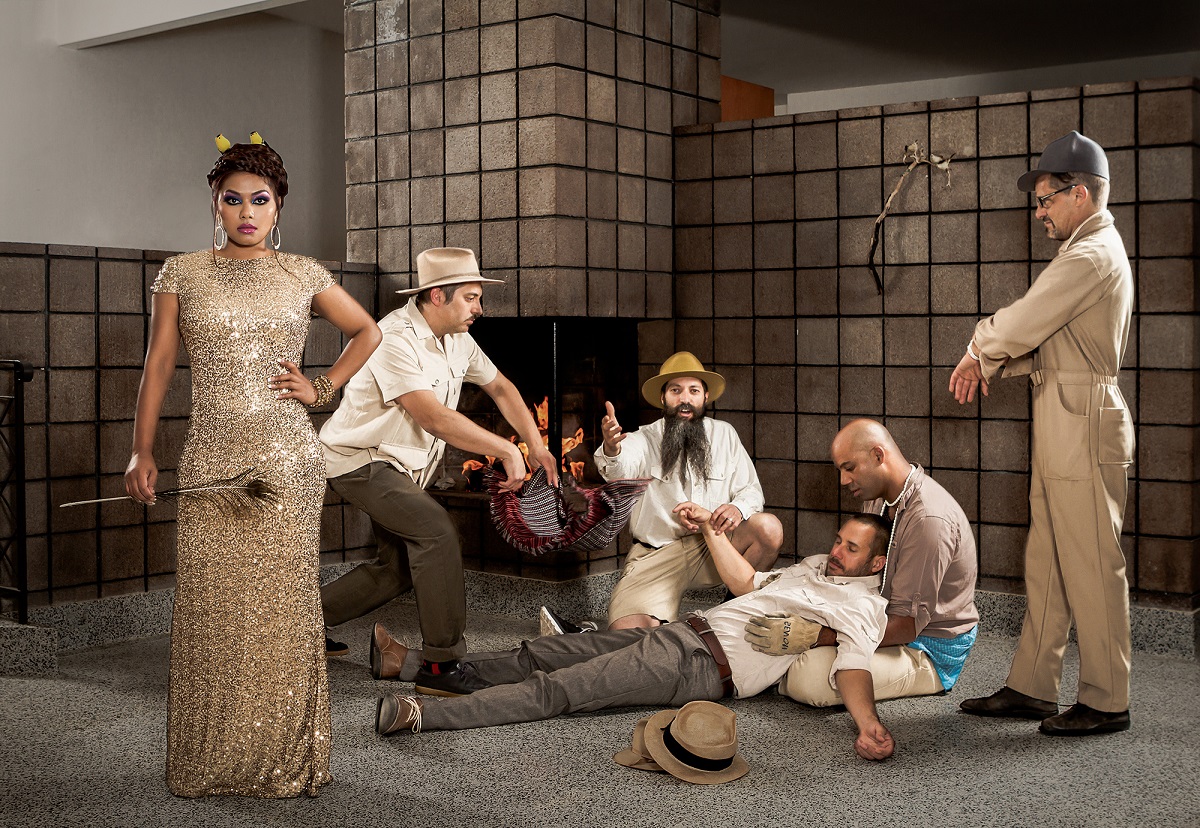 Sometimes when I write about music, I’m surprised. Surprised because an album is way better than expected or because it’s so much worse than I could’ve imagined. Sometimes a new single stops me in my tracks or an old band comes out of nowhere with a strong set of material. But rarely has an album caught me like Dengue Fever’s The Deepest Lake did.
Sometimes when I write about music, I’m surprised. Surprised because an album is way better than expected or because it’s so much worse than I could’ve imagined. Sometimes a new single stops me in my tracks or an old band comes out of nowhere with a strong set of material. But rarely has an album caught me like Dengue Fever’s The Deepest Lake did.
Unlike the majority of the stuff I review here, I went into this one blind. Not only was it emailed to me with no information, but I started listening to it before looking the band up. And wow, this one caught me between the eyes! It’s groovy and grungy, somehow both retro and modern at the same time. It’s utterly fantastic.
Since Dengue Fever somehow escaped my attention, I imagine they might’ve slipped past yours, so let’s start with a quick bio: formed in 2002, Dengue Fever is a six-piece band based out of Los Angeles. The Deepest Lake is their sixth album, but the first on their newly formed label Tuk Tuk Records. In the past, they’ve received accolades from Mojo magazine and Amazon, gotten props from musicians like Peter Gabriel and were previously on Fantasy Records. Even if it’s their sixth record, The Deepest Lake seems as good a place as any to get acquainted, so let’s jump in.
The album kicks off with “Tokay,” a song packed with a thumping bassline, an ancient-sounding keyboard and singer Chhom Nimol singing in Cambodian. As Dengue Fever slowly builds up the tension, adding percussion, a horn, and a string section, Nimol’s singing gets more impassioned. This was the song that caught me off guard, turning me on to their music. But it’s only the beginning.
Things keep getting added as the album progresses: on “No Sudden Moves,” for example, Nimol bursts into a rap before segueing into a twangy guitar solo, layers of horns, and a bassline worthy of Jah Wobble. Meanwhile, on “Ghost Voice”, they go for a mellower 60s pop sound, with a twirling guitar line, strings and David Ralicke’s low-rumbling saxophone.

 Throughout this album, Ralicke’s sax is Dengue Fever’s secret weapon: it’s not always up front in the mix, but when it is, it gives their music a propulsion, kicking them into high gear. Just listen to his playing on “Still Waters Run Deep,” which takes a rocker and turns it into a 60s groove monster.
Throughout this album, Ralicke’s sax is Dengue Fever’s secret weapon: it’s not always up front in the mix, but when it is, it gives their music a propulsion, kicking them into high gear. Just listen to his playing on “Still Waters Run Deep,” which takes a rocker and turns it into a 60s groove monster.
It’s not always high-energy grooves. For example, on “The Deepest Lake on the Planet,” they go for a slower, atmospheric sound: spidery guitar lines that sound like something from a James Bond movie, big chords on an electric organ, and Nimol sounding like a cabaret act. “Vacant Lot,” is more of the same, but with them pushing the emotion right at the listener. Oh, there’s a flute solo, too.
In all these styles, Dengue Fever is equally effective, never once sounding out-of-place or anything less than entirely confident. Or like anything else I’ve heard in a long time. I think William Onyeabor’s compilation is the last time I’ve heard anything that synthesizes so many influences into a unique-sounding stew.
For me, the really killer track is “Rom Say Sok.” Here, Nimol sings as Dengue Fever builds a steady groove, heavy on keyboards and slashing guitars. But things quickly take a left turn, bursting into an impassioned saxophone solo and climaxing in a sheet of horns and wailing. It’s an explosive number.
Calling something like this World Music is a little troublesome since that’s such a blanket term and has become suffocating. It’s easy to label anything that’s not straight-ahead North American-sounding World Music and shuffle it off to the corner of the music store, in a little bin full of old reggae compilations and a couple Latin samplers. Music is music, no matter where it comes from, and giving an album like The Deepest Lake such a general label is utterly restricting.
For starters, because the music here takes so much influence from so many diverse sources, it’s hard to pin it down as just one thing. Yes, Dengue Fever is heavily influenced by 60s Cambodian rock – a genre anthologized nicely on The Rough Guide to Psychedelic Cambodia (which also features them, too) – but I hear little bits of everything from soul to funk to afrobeat to breakbeat to rock. But it’s unmistakably theirs: a couple listens to this album and you’ll never get their tunes mixed up with anyone else.
Ignore the ridiculous, made up labels people will attempt to stuff Dengue Fever’s new album into. The only label The Deepest Lake needs is Really Good Music. Or maybe Stuff You Should Listen To. But definitely Five Out of Five, too.
Rating: 5/5


